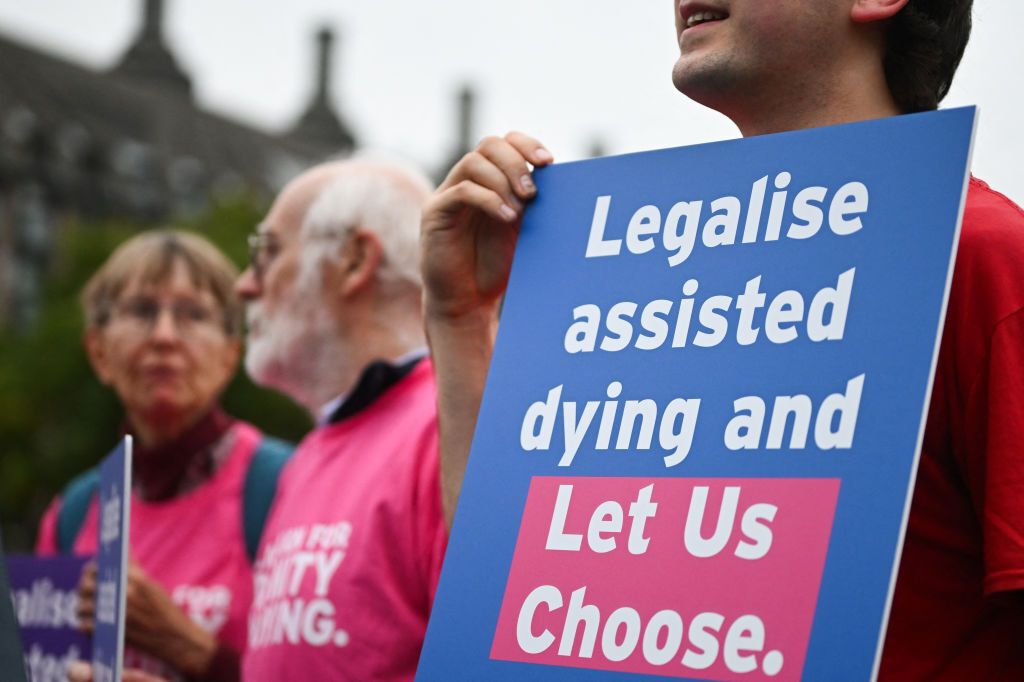 A campaigner from "Dignity in Dying" holds a placard during a demonstration outside parliament last month.
A campaigner from "Dignity in Dying" holds a placard during a demonstration outside parliament last month.The vast majority of British people believe the NHS is in no fit state to deliver assisted dying if it is legalised.
A poll by the More in Common think-tank found that three-quarters of voters - 74% - are worried about the health service’s ability to deliver the policy.
The shock findings are a boost for health secretary Wes Streeting, who has said that he will vote against the assisted dying bill when it is debated by MPs on Friday.
Speaking earlier this month he said there would be “resource implications” for the NHS if the bill passes.
He said: “Those choices would come at the expense of other choices.”
The More in Common research found that 65% of the public support the principle of assisted dying, with just 13% opposing it.
However, there are clear concerns about how it could be implemented, with even 69% of those who support it believing the NHS is currently not capable of carrying it out.
One woman told the researchers: “We all know the NHS is really struggling as it is, so you add an extra service in that. They’ve got to facilitate as well. They’re not going to manage it. And then it becomes a waiting list game.”
More in Common said: “While a plurality want assisted dying to be provided by the NHS, and 62% trust the NHS to make the right decisions about who should be able to receive help to end their life, 74% of the country think that the NHS is currently not in a fit state to provide people with the option of assisted dying.”
Luke Tryl, More in Common’s UK director, said, if MPs vote in favour of the bill on Friday, more time must be set aside for them to debate the legislation as it proceeds through parliament.
He said: “It does seem there is support for the principle but a desire to get the safeguards right, so it would be better for the bill to get to committee stage and for MPs to properly test if those safeguards can be met. That would seem to be where there public are.
“But if it doesn’t pass, this shouldn’t be the end of the issue. It would not meet public expectations for it to be kicked into the long grass for the next decade.”


